The Music Room

See more details, packaging, or compare
Synopsis
With The Music Room (Jalsaghar), Satyajit Ray brilliantly evokes the crumbling opulence of the world of a fallen aristocrat (the beloved actor Chhabi Biswas) desperately clinging to a fading way of life. His greatest joy is the music room in which he has hosted lavish concerts over the years—now a shadow of its former vivid self. An incandescent depiction of the clash between tradition and modernity, and a showcase for some of India’s most popular musicians of the day, The Music Room is a defining work by the great Bengali filmmaker.
Picture 7/10
Satyajit Ray’s The Music Room marks the director’s debut into The Criterion Collection with Criterion presenting the film on dual-layer disc in a new 1080p/24hz digital transfer in its original aspect ratio of 1.33:1.
Those familiar with Ray’s films and their history are probably aware that they’ve always been presented in less than adequate ways. The negatives to most of his films are gone and the copies that remain are in horrendous condition. Previous DVD editions have also been disasters in their own way. I wasn’t holding out much hope with Criterion’s presentation, expecting a bit of a mess but imagine my shock when I saw that not only did the film not look horrendous but saw that it actually looked exceptional.
I’ve never seen the film screened and can’t comment on that but the previous DVD edition I rented from Netflix (and I’m unable to recall the company that produced the disc) was pretty much unwatchable. True, the source materials are in terrible condition but the image was blown out, impossible to see, and laced with compression artifacts. Criterion has improved every aspect of the presentation in every conceivable way. The source materials still present a number of problems but they’re in no way as distracting as they are in that previous DVD. Scratches do remain and are always there, transitions presenting heavier amounts of damage along with jumps in the frame, and there can be a slight jitter here and there along with flickering, pulsating, and tram lines, but really, in comparison to what the image could have looked like this is really incredible, and the amount of work that has gone into the restoration is unbelievable and has to be commended.
Of course all of that hard work would be for naught if the digital presentation wasn’t up to par but thankfully the transfer itself is also a stunner. Contrast is much better, the film no longer blown out, and there are some strong blacks and whites with distinguishable gray levels in between. Criterion has thankfully not softened the image to hide the fine scratches that remain in the print, a trick they’ve unfortunately used on some of their older DVD releases like Twenty-Four Eyes, ultimately making the picture look fuzzy. But since they haven’t done that here the picture remains sharp with excellent definition and fine object detail, when the source materials allow it (there are unfortunately still plenty of moments where the film goes fuzzy or looks to be out of focus, something I blame more on the print used.)
No, it’s not perfect because of the limitations of the print used, and I’m sure there will be those who will find much to complain about since damage is still fairly heavy but it really could have been far worse and the amount of work that has gone into this presentation is staggering. Really, I never thought the film would look as good as it ultimately does here yet here it is.




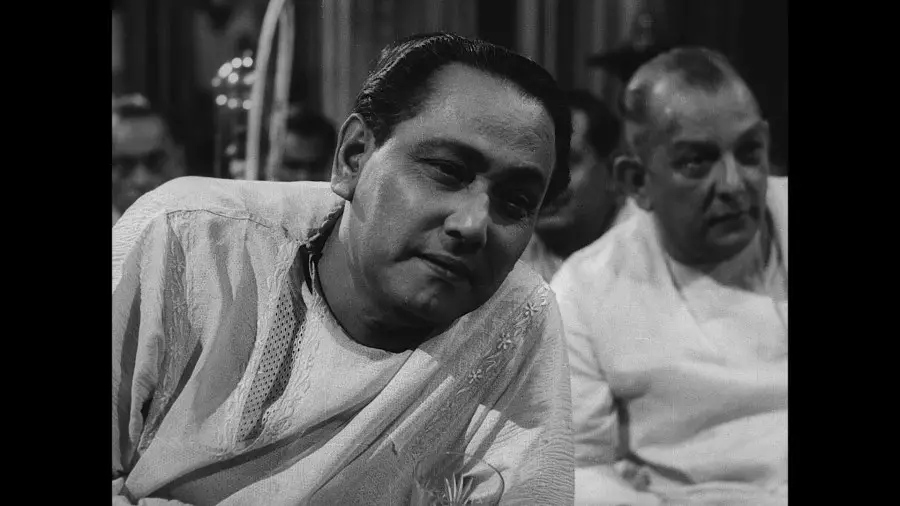

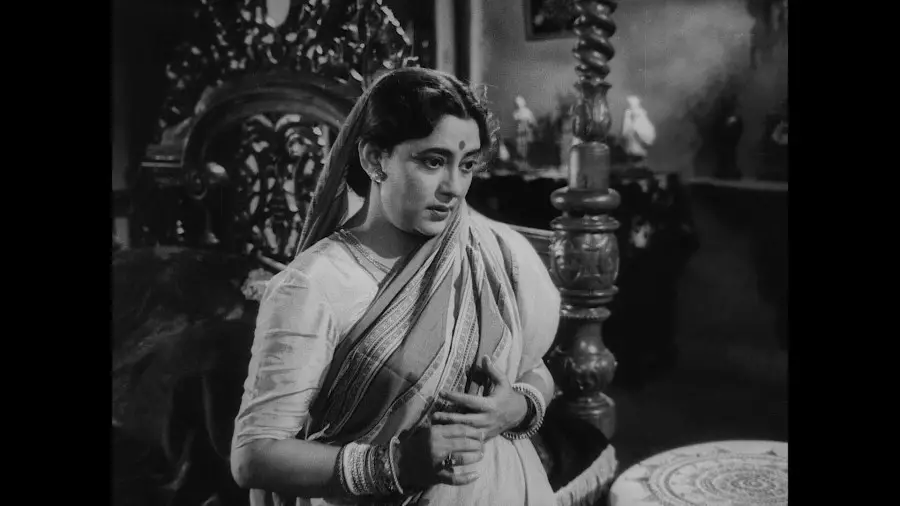


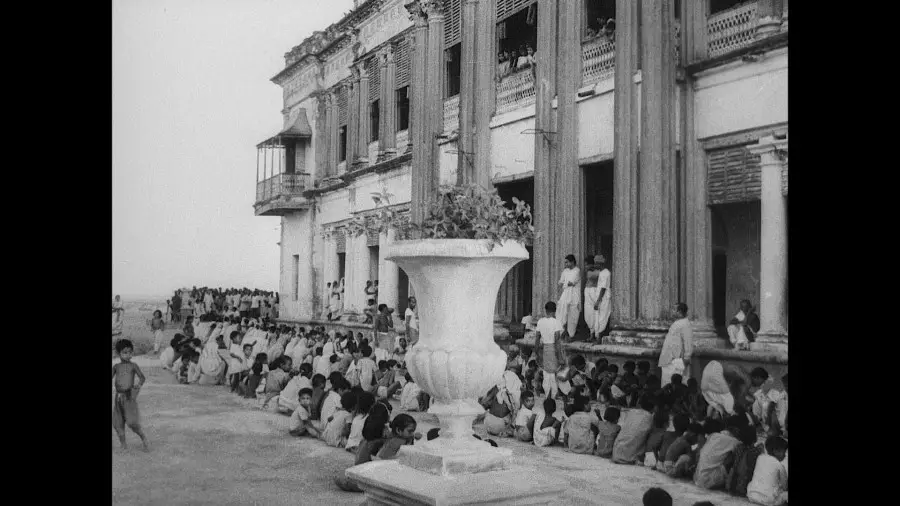


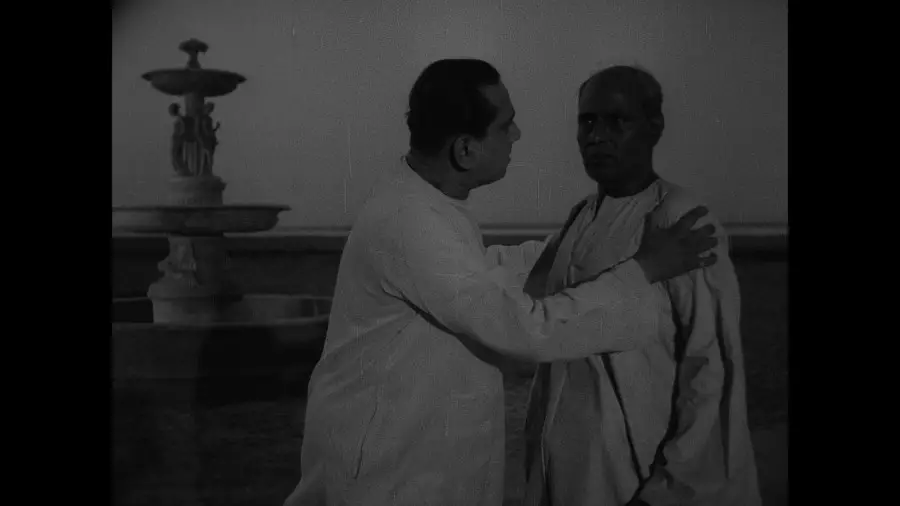



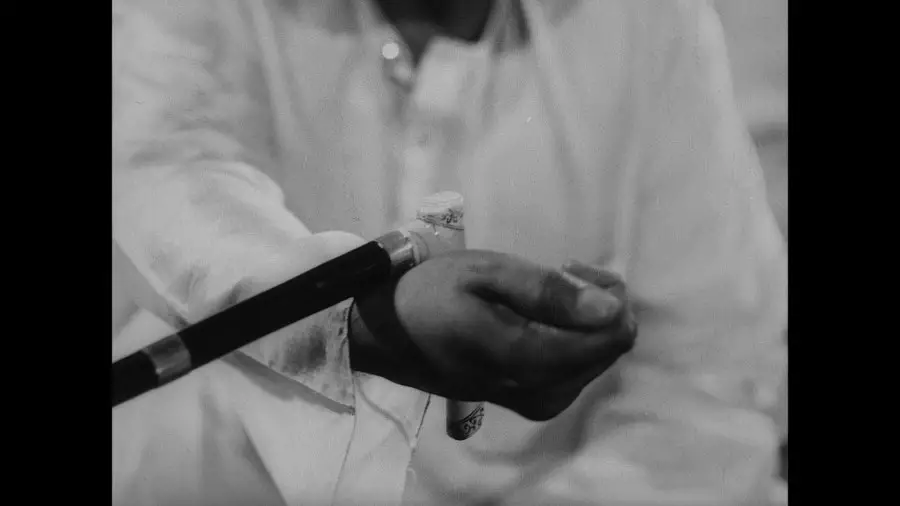



















Audio 5/10
While the video presentation went above and beyond anything that I could have hoped for the audio on the other hand falls about where I was expecting it, which isn’t terribly good. The lossless PCM mono track surely offers an improvement over the previous DVD I viewed yet it’s still a bit of a mess. Unfortunately the track sounds distorted and rough, and the music can come off harsh and even piercing. The film is in Bengali with English subtitles so you don’t have to worry about missing big chunks of dialogue in the film, but there’s a couple of English speaking moments which are near impossible to hear.
Again it could have been worse and Criterion has still put in a great amount of effort. But age and storage conditions haven’t treated this track terribly well and despite their best efforts its problems are still there.
Extras 7/10
Criterion includes a bevy of supplemental material starting with an interview with Ray biographer Andrew Robinson under a feature titled For the Love of Music. In this 17-minute interview Robinson offers a sort of making-of feature first covering Ray’s films prior to The Music Room and then moving on to that film. He talks a little about the short story on which its based, offering some comparisons, talks about Ray’s presentation of the main character, offers some brief historical context for those of us unfamiliar, and then talks about the music that has been integrated naturally into the film, something unheard of in Indian cinema. It’s fairly brief but Robinson really packs in a lot of information about the film and its production history.
Filmmaker Mira Nair next offers her thoughts on Ray and The Music Room in this 16-minute interview. It’s kind of an odd inclusion as I didn’t find it offered much, but Nair talks about how she first saw the film, sharing what she loves about the film and the things she had trouble with (she admits to never being able to buy Chhabi Biswas as a young man in the flashbacks.) And of course she talks about the music in the film and then her brief friendship with the director. Some okay insights and stories but it’s probably the least interesting feature here.
French Roundtable is an 11-minute portion from a January 18th, 1981 episode of L’invite de FR3, which presents an interview between director Satyajit Ray, director Claude Sautet, critic Michel Ciment, and host Dominique Reznikoff. Both Ciment and Sautet express their admiration for Ray and his work, concentrating specifically on The Music Room which was just premiering in France (23 years later!) Ray, who speaks in English but is dubbed over in French for the television program, expresses his gratitude and then talks about the film, its character, and music. Unfortunately it feels like it’s been cut off but it’s still a nice inclusion, especially for Ray’s input about his work.
Finally we get to the biggie feature, Shyam Benegal’s 1984 documentary Satyajit Ray, which runs a whopping 131-minutes. The feature is primarily what appears to be a series of interviews between Ray and Benegal (apparently recorded over the course of three years) with Ray talking about his film career over the years, starting with how he first discovered the movies and how he made his way into filmmaking. They talk about his many films, complete with clips, and the two also cover some of the technical details about his films and style of shooting. Though fine I must express a certain disappointment. Ray is incredibly engaging as an interview subject but I was still expecting a little more from this “documentary”, which in essence is really a 2+ hour talking head piece with a lot of clips and that don’t necessarily enhance what the two are talking about. But in the end it’s worth viewing for the interview portions and some of the behind-the-scenes footage we get from the set of The Home and the World.
The fairly thick booklet included then contains a nice essay by Philip Kemp about Ray and The Music Room, a reprinting of a short essay by Ray on his film, and then the reprinting of a 1989 interview with Ray that focuses on the music in the film, with more from Ray on star Biswas’ lack of understanding for music, mentioned in some of the other features on the disc. There’s also a note on the preservation project conducted for Ray’s films.
Despite some minor disappointments with the documentary it’s a great collection of supplements, all of which offer a great primer on the director for those unfamiliar with Ray and his work.
Closing
Supplements are decent but the selling point here is certainly the transfer. The presentation is a stunner and those involved in its restoration and transfer really have to be applauded; this is far and beyond what many were probably hoping for and makes the Blu-ray a must.







